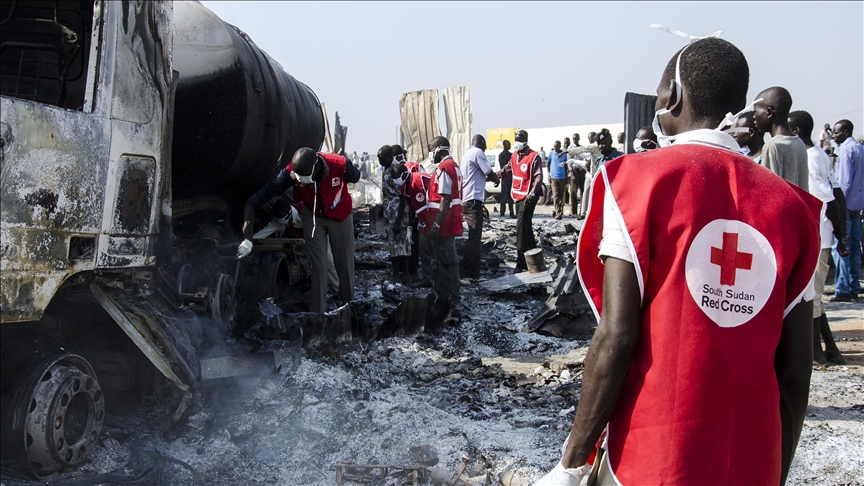- Details
- East Africa
- 463
File Photo from Archive, Juba, South Sudan
'This attack represents yet another deadly, unacceptable attack on civilians, humanitarian workers since beginning of this armed conflict 2 years ago,' says joint statement
The UK, and 29 other countries condemned attacks against civilians and humanitarian workers in Sudan, according to a joint donor statement on Friday.
The donor countries said they "condemn in the strongest terms" the attack on a humanitarian convoy of 15 trucks from the World Food Program (WFP) and the UNICEF in Al Koma, North Darfur, on the night of June 2.
Recalling that the attacks resulted in the death of five members of the convoy and injuring several others, it said that four of the 15 trucks in the convoy were destroyed in the attack and five more sustained partial damage.
"These trucks were carrying about 100 metric tons of essential nutrition, health, education, and WASH supplies, intended to support children and families in El Fasher town," read the statement.
Stressing that the deliberate targeting of humanitarian personnel is a violation of international law, the donor countries underlined that civilians and humanitarian workers must not be targeted by parties to the armed conflict.
"We urge all parties to allow civilians to safely exit areas with ongoing hostilities, and to guarantee immediate, unconditional, safe and unhindered humanitarian access to deliver assistance to those in urgent need throughout Sudan," the readout said.
The statement also reiterated their call to the Sudanese Armed Forces, the Rapid Support Forces (RSF) and their militias to "immediately cease hostilities" and uphold their obligations towards international humanitarian law.
"This attack represents yet another deadly and unacceptable attack on civilians and humanitarian workers since the beginning of this armed conflict two years ago, in blatant disregard of international humanitarian law."
The RSF and the army have been locked in a brutal power struggle since April 2023, resulting in thousands of deaths and pushing Sudan into one of the world’s worst humanitarian crises. Anadolu Agency






